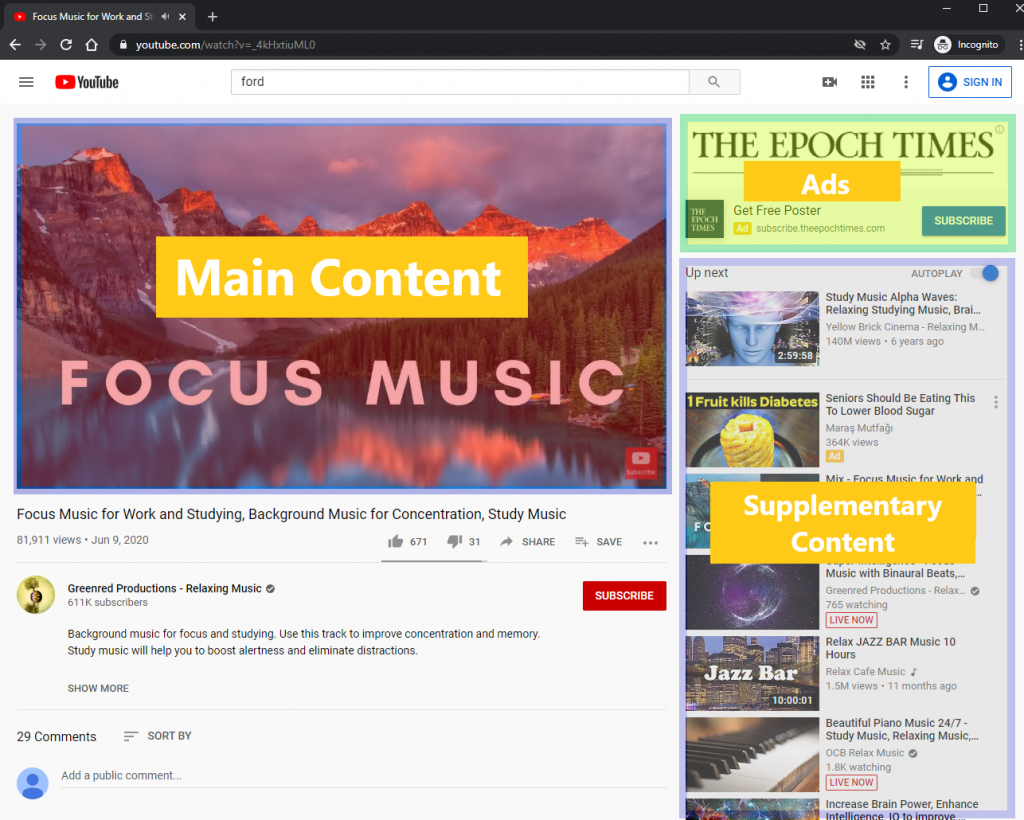Google Search Guidelines – What Type of Website Is Worthy of the Highest Quality Rating?
Google released an updated version of their Quality Rater Guidelines for 2020. It is packed with useful information to help us bloggers create the best quality content for our audience.
What are the Quality Rater Guidelines?
Google employs thousands of people to review web sites and make recommendations on the quality of their content. It’s not known if the results of these reviews actually go into helping your content rank, or if Google uses these results to improve the AI of their search engine, but understanding what the testers look for is really helpful in determining how to construct your content.
The quality rater guidelines is a document that Google publishes and gives to these testers. It gives instructions on how to rate pages and websites, how to judge the contents quality (high, medium, low), authoritativeness, and trustworthiness.
This post is a breakdown of what the Google Quality Rater Guidelines mean, and how you can implement them into your site.
Web Page Content
How does Google look at your web page? For the purposes of the quality rater guidelines it breaks your site down into 3 main sections:
- Main Content (MC)
- Supplementary Content (SC)
- Advertising and Monetization (Ads)

Main Content
Main content is the real meat and potatoes of your blog post or article. It’s the part of the page that achieves the purpose of the post, and should reflect the premise stated in the blog title. It should provide helpful content to the user. Some examples of helpful content:
- Product Info
- Personal Info
- Sharing Pictures
- Opinion Pieces
- Entertainment
- Selling products
Supplementary Content
Supplementary content contributes to a good user experience. It doesn’t directly help the subject of the page achieve it’s purpose, but it does contribute to the quality of the page. If done wrong supplementary content could potentially detract from the user experience, but if done correctly then it should increase the utility of your post.
Supplementary content can contain the following:
- Links to social media
- Comments sections (like in blog posts or YouTube videos)
- Embedded social media posts
- Call to action buttons
- Navigation links to other parts or the website
What Is the Difference Between the Main Content of a Site and Supplementary Content?
Essentially the main content of your page speaks directly to the topic in your page title. This leads to a post that “fully meets” the users expectations when they navigate to your post. What is the description of “fully meets”? It’s the highest score for a Needs Met rating, it means that your post has fully met the query of the searcher. So if someone searches for “How to Groom Siberian Huskies” they should get a page explicitly addressing the grooming needs of Siberian Huskies. Your post shouldn’t go into great detail about other breeds, or turn into a sales pitch for affiliate links at the expense of helpful content.
On the other hand, Supplementary content supports your site, and may support some of the content of your post. Maybe you’re linking to similar articles, or embedding a Web Story to give your post more curb appeal. According to the guidelines, the easiest way to identify supplementary content is to look for parts of the page that are not main content or Ads.
Advertising and Monetization
Advertising and monetization is common on blogs, and in many cases supports the operating costs of a website and provides ancillary or primary income for the bloggers. Google’s search guidelines document states that the mere presence of ads or affiliate links does not contribute to a high or low quality ranking for a web site. It all depends on how tastefully you use them, and if the contribute or detract from the Main Content.
Your Money or Your Life (YMYL) Posts
Some web content falls into the bucket of “Your Money or Your Life” content. This kind of content has the potential to impact a reader’s life negatively or positively and is thus scrutinized for quality more closely by Google.
Examples of YMYL topics inclue:
- Finance
- News/Current Events
- Civics
- Government
- Law
- Shopping
- Health and Safety
- And other topics depending on how the content is crafted.
If you are writing about a YMYL topic, be prepared to do careful research, be able to show you have a level of expertise in the subject matter, and demonstrate that you are a demonstrable authority figure in the field if you want Google to rank you well.
Website Reputation
Website reputation is important to Google’s Page Quality Ranking. A website’s reputation is based on many factors. Google takes into account the experience of real users, and of experts in the topic of the website. Reputation comes from independent sources outside of your website.
Some examples of independent resources include:
- Customer reviews
- Wiki Articles
- Other blog posts linking to your site
Small websites may not have much reputation due to their size, and Google indicates that this would not be a negative indication of page quality for these smaller sites.
How Do You Know What Your Websites Reputation Is?
To find reputation information on your website the Quality Raters Guidelines outlined these advanced Google search ideas where you would replace “ibm.com” with your domain:
- [ibm -site:ibm.com]: A search for IBM that excludes pages on ibm.com.
- [“ibm.com” -site:ibm.com]: A search for “ibm.com” that excludes pages on ibm.com.
- [ibm reviews -site:ibm.com]: A search for reviews of IBM that excludes pages on ibm.com.
- [“ibm.com” reviews -site:ibm.com]: A search for reviews of “ibm.com” that excludes pages on ibm.com.
- For content creators, try searching for their name or alias.
Who Are You?
Google also states that it should be clear who is responsible for the website, and who is creating the content. So having an “About” page which describes the website, it’s creators and their expertise is important to rank well with Google. If there is a disagreement between a websites claim of expertise and that of independent sources, Google always sides with the independent sources.
Licensed Content
Some websites show licensed and syndicated material. Google holds that website responsible for the reputation of the licensed or syndicated material they host.
Money Transactions
If you run an online store, a bank or any other type of website that handles money, it is critical that you have contact info, and that it’s easy for a user to contact you.
Anonymity
Some websites do have a legitimate reason for anonymity, such as personal blogs, and Google says these sites will not have anonymity impact their quality ranking.
What Are the Most Important Factors to Consider for Overall Page Quality Rating?
- The purpose of the page
- Expertise, Authoritativeness, Trustworthiness (E-A-T, more on this later)
- Main Content Quality and Amount, how many quality paragraphs is your post? How in-depth is the data? Don’t write just to fill up space, write as much as needed to explore the topic though
- Information about the website as well as who the creators are
- Website reputation
Expertise, Authoritativeness, and Trustworthiness (E-A-T)
Google looks at your posts, and tries to determine the level of expertise that the author who wrote it has. They want to present content to their users that they think will fully fulfill the users search queries.
If you write a post on how to build a house, but have never built a house before, that is likely going to show in your content.
If you have a blog that meanders all over the place, and isn’t focused on a particular niche, that could lead to a loss of authoritativeness.
If you give bad advice on your blog then that will lower your trustworthiness.
What’s the moral of the story? Pick a niche that you know about, or are interested enough to really learn about, and write content that accurately and expertly solves your reader’s problems.
Final Thoughts
Google’s Quality Rating Guidelines is a treasure trove of information, and if you’re serious about making money on the web then you’ll want to read through the guide to learn how to make your website rank better for Google. Keep in mind, Google is trying to server their customers, and what does Google produce? Search results. So ultimately the more you listen to Google about how to format your site for them, what you’re really doing is making your blog better for your readers. It’s a win-win!
If you’re new to this field and are ready to start blogging then you’ve really lucked out by coming across these guidelines early in your journey. Most bloggers don’t learn about these guidelines for years, if ever. Understanding these guidelines will give you a real head-start along on your road to better serving your readers and becoming a professional blogger.
